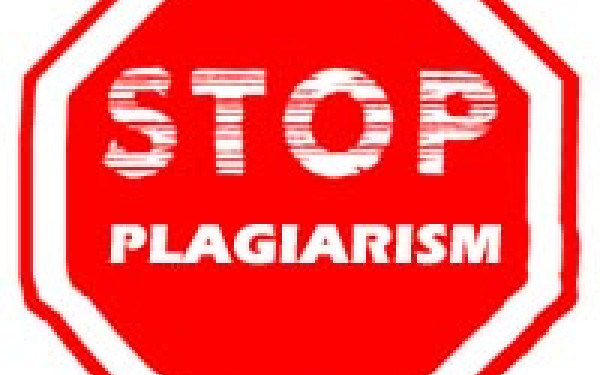Turning it in
Concordia pilots anti-plagiarism software this summer
Quietly over the summer session, Concordia’s Centre for Teaching and Learning Services has piloted an American-based anti-plagarism software called Turnitin in the university’s classrooms over the last three weeks.
Running until the end of August, a small sample of 11 Concordia classes will be experimenting with Turnitin, the self-described “global leader in originality checking and plagiarism prevention […] that lets students check their own writing for improperly used content, inadvertent plagiarism or quotation errors.”
Testing to see if the program is something that would interest the university to implement come fall, this trial invites students to upload their assignments onto the online service, where their work will be matched to over 125 million other student papers, 13 billion web pages and 90,000 academic journals, periodicals and books to verify original content and proper citation.
“This is a great tool for students to get feedback on their work,” said John Bentley, the Program Coordinator and Instructional Developer from the Centre of Teaching and Learning Services, who has been involved in setting up the Turnitin program at Concordia since November 2009.
“What we think will be of benefit is allowing students to [see] if they have potentially used someone else’s work and haven’t provided a proper citation, but may not have known they have done that. [The program] actually starts teaching the students writing skills and the notion of [what it means to] synthesize information.”
Though it is too soon to speculate about student reaction to this service, at least one of the trial classrooms have called attention to various concerns with the software, specifically citing the protection of personal and intellectual information.
An introduction to the Turnitin program, affixed to the last page of course outlines of classrooms involved in the trial, states that “students who use the text-matching software agree to providing and sharing certain personal information with the software provider. Students are advised that the university cannot guarantee the protection of personal information provided to a U.S software provider and subject to U.S laws.”
Despite this warning, Bentley said he’s confident with the security measures taken by Turnitin.
“They’ve really gone out of their way to protect students and the work uploaded to the server, which is on Canadian soil. You can’t just grab a document and repurpose it, it’s all heavily encoded and encrypted,” he said. “But like all of these things, they couldn’t say to me that they can absolutely, 100 per cent guarantee that student information can’t be accessed somehow. But they felt very, very confident that it’s well guarded. I’m always a bit leery of speaking in absolutes, but it’s pretty secure, from what they’ve explained to us.”
Michael Thompson, the Regional Manager of Turnitin for Canadian clients, also stressed that both the intellectual and personal information of students is under lock and key.
“What it comes down to is that we don’t hold a copyright, or any students’ work as our own, or publish it, or put it out there on the web for anyone to see,” he said.
In terms of personal information, Thompson added that the software doesn’t require significant personal information from students. All that is necessary is a name and an email address to communicate paper submissions. The database of papers is not searchable by name, ID or paper subject.
But if Concordia students prefer to opt out of the Turnitin process during the trial, they have the choice.
“It’s not mandatory,” said Bentley. “[Students] have the option of submitting assignments without the software in a more traditional manner […] But if students do opt out the lecturers will suggest that there are a couple of other mechanisms in place [to ensure proper citation].”
On the course syllabus given to trial classes, alternative documentation for students who decline to use the software include: “a short reflection paper or report on the research methodology used, copies of multiple drafts, an annotated bibliography, photocopies of sources, an oral examination or written quiz directed at issues of originality, [and] other alternatives devised by the instructor and which meet with the approval of the Chair that are meant to attest to the authenticity of the written work.”
Other Canadian universities using the Turnitin software, including McGill and Ryerson University, agree that the use of the system is voluntary.
“The number one thing we want to stress is that we don’t want to use it as a punitive tool. It is simply a learning tool for students,” said Bentley. “It’s the pedagogical stuff that we’re interested in, it’s how it supports students in their learning, research and writing. Hopefully it will be a benefit.”
This article originally appeared in Volume 31, Issue 1, published June 11, 2010.





WEB_600_375_90_s_c1.jpg)
_600_375_90_s_c1.jpg)
